BIG TIME ADOLESCENCE (2019)
A suburban teenager comes of age under the destructive guidance of his best friend, an aimless college dropout.
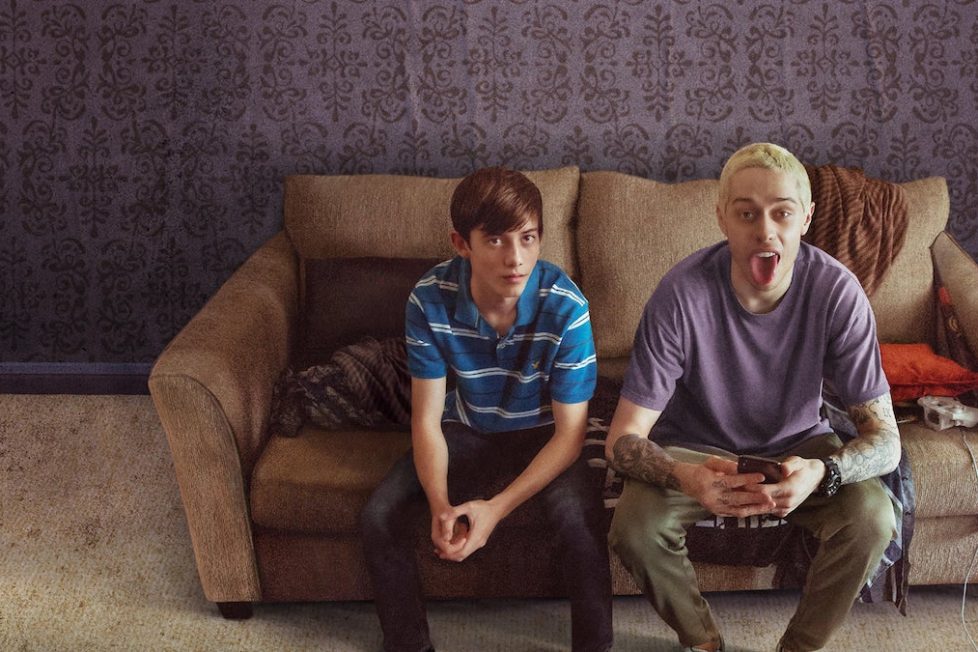
A suburban teenager comes of age under the destructive guidance of his best friend, an aimless college dropout.


Quality coming-of-age stories always cause noise at the Sundance Film Festival: from the critical and commercial smash of Little Miss Sunshine (2006) to the Grand Jury Prize and ‘Audience Award’ winner Me and Earl and the Dying Girl (2015). After premiering to mostly positive reviews, Big Time Adolescence was picked up by Hulu for $4M. And after spending nine months on the shelf, with its theatrical release now cancelled due to the COVID-19 crisis, Big Time Adolescence is available on the US streaming service.
Arguably, John Hughes perfected the coming-of-age tale with Sixteen Candles (1984) and The Breakfast Club (1985). Since he revolutionised the genre, it’s easy to write them off as being too similar to one another. In most ways, they are. Escaping genre formulas can be difficult. It’s not often audiences are treated to a Lady Bird (2017) or Eighth Grade (2019); a feature that exemplifies the genre and brings something new to the table. What’s refreshing about Jason Orley’s debut, is the way the writer-director infuses his characters with such honesty.
Like most of my peers, as a teenager, I was obsessed with high school comedies. The wild nature of pictures like Fast Times at Ridgemont High (1982) and American Pie (1999) was always appealing. The characters were cool and they got into all kinds of hijinks without any major implications. Big Time Adolescence focuses on what happens to a character like Jeff Spicoli or Eric Stiffler after they receive their high school diploma… and enter a world that doesn’t recognise or care about their social status during school.
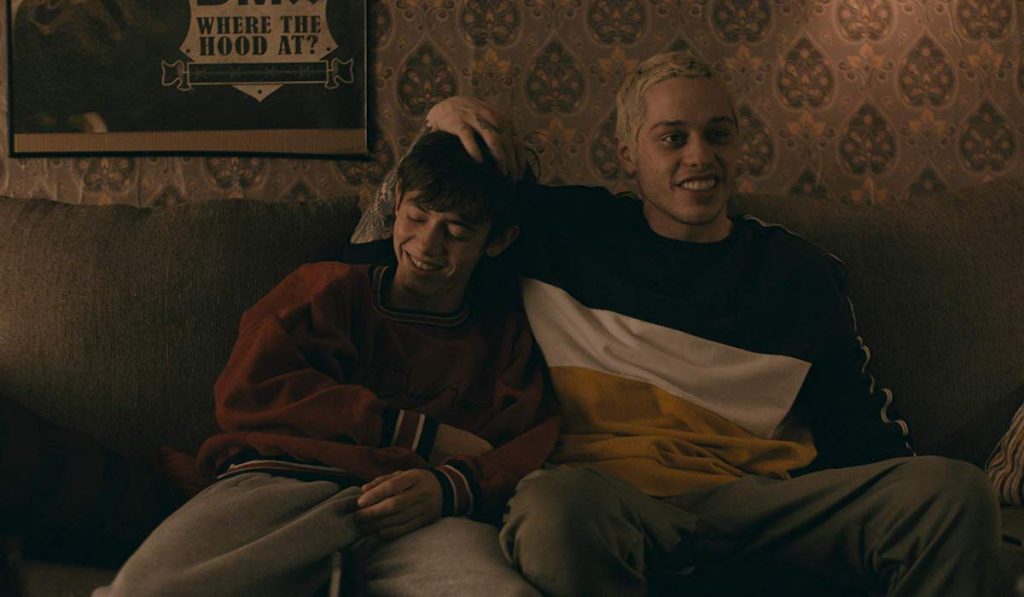
16-year-old Mo (Griffin Gluck) idolises his best friend Zeke (Pete Davidson) because he’s funny, cool, and worldly. The only problem is 23-year-old Zeke is the ex-boyfriend of Mo’s older sister (Emily Arlook). Understandably, Mo’s parents aren’t happy about their son hanging out with a grown-up slacker who spends his time getting drunk with his friends. And when Mo and Zeke hatch a plot to sell alcohol and drugs to Mo’s high school friends, the limits of their friendship are quickly tested.
After finding his footing as a regular on the ‘Weekend Update’ segment on Saturday Night Live, and stealing the show in Netflix’s rom-com Set It Up (2018), Davidson’s first dramatic role finds him following in the footsteps of fellow SNL alumni Andy Samberg (Hotel Transylvania 3: Monster Vacation) and Bill Hader (It: Chapter Two). As a college dropout who spends his days drinking, smoking weed, and playing video games, the character doesn’t feel that far removed from the comic’s own persona. However, surprisingly Davidson proves that he’s an underrated talent in both comedy and drama.
In one scene that’s a clear homage to Ferris Bueller’s Day Off (1986), Zeke and Mo visit an art museum. After staring at several pieces, Davidson describes how a painting looks like “a bunch of scribbles and dicks”. His character’s childlike sensibility and deadpan humour are sweetly profound, while his energy evokes Adam Sandler’s Billy Madison (1995) and makes him more appealing. The actor also proves he’s capable of pushing his range, as a scene where he drinks and sings karaoke alone allows Zeke to express the grief he suffered after breaking up with his girlfriend.
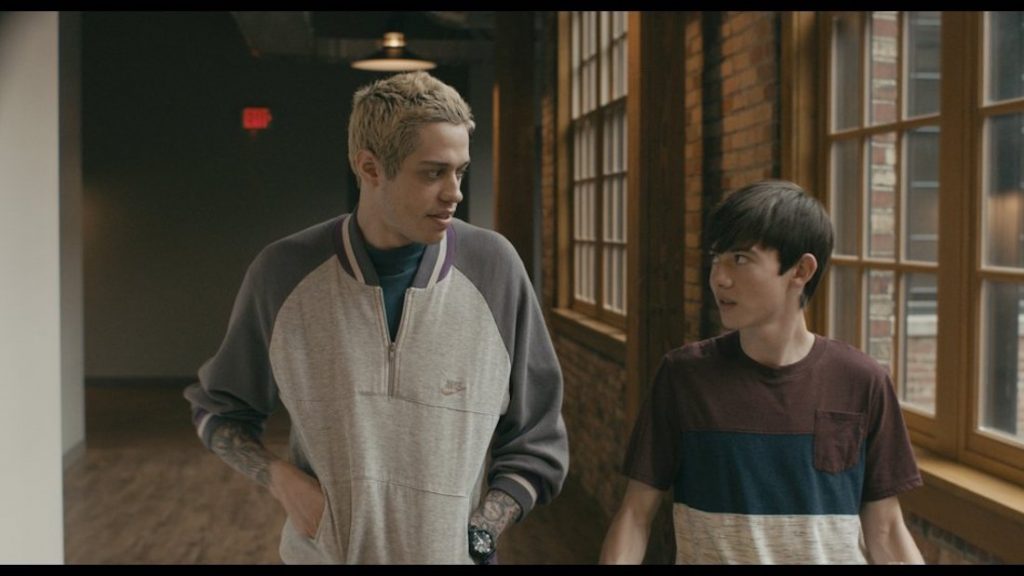
Bearing in mind his Ariana Grande-fueled tabloid headlines and Instagram mayhem, it’s difficult to tell where Davidson ends and Zeke begins. Nevertheless, he commands the screen effortlessly. Davidson’s carefree attitude and infectious humour elevate Big Time Adolescence. Thankfully other filmmakers have taken notice, as Judd Apatow (Trainwreck) announced his next feature as an autobiographical comedy about Davidson’s own life.
Showcasing his range well beyond his work in Netflix’s mockumentary American Vandal (2017), Griffin Gluck’s character Mo has the look of a John Hughes protagonist. He’s the slightly awkward and intelligent 16-year-old who’s too shy for high school’s notoriously vicious and self-absorbed cool kids. Gluck makes for a strong and relatable lead, representing the danger of being a confused and directionless modern-day teen. His performance balances out the energy of Davidson’s performance, with incredible comedic timing on several occasions. His endearing demeanour has a strong resemblance of a young Michael Anthony-Hall (Sixteen Candles) or Joseph Gordon Levitt in 10 Things I Hate About You (1999). Jon Cryer (Pretty in Pink) also delivers a strong performance as Mo’s father, by playing up the protective qualities of the character while hinting at his desperate desire to connect with his son.
In the opening sequence, we flashback to Zeke and Mo at the start of their friendship. A teenage Zeke is dating Mo’s older sister Kate (Emily Arlook), while a miniature Mo follows them on their dates, and Zeke starts to behave like an older brother. In voiceover, Mo explains “he took me on rollercoasters, he took me to R-rated movies, he gave me a beer”, and now, six years later, Mo’s childlike admiration has escalated to hero-worship. He listens to the same music as Zeke, quotes him, and tries to emulate his live-for-the-moment lifestyle. The two have become best friends and watching the bonding between them is equally hilarious and melancholic.
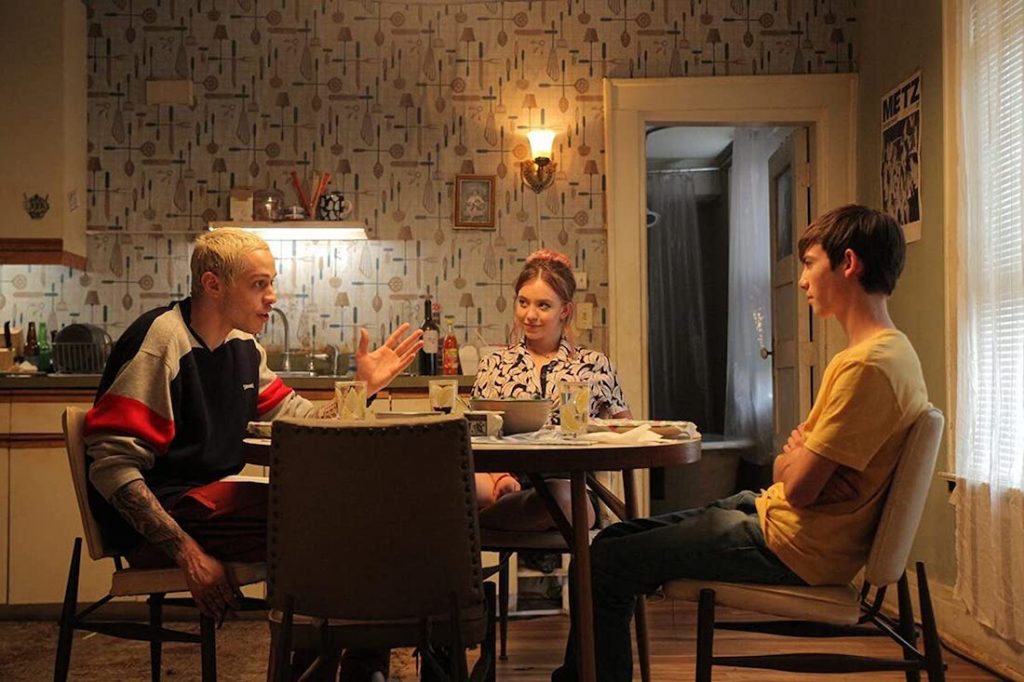
The setup of an older guy being a bad example for an impressionable teen is something we’ve seen many times before. The narrative structure resembles About a Boy (2002) and A Fat Kid Rules the World (2012). However, first-time writer-director Orley has carefully crafted his script and added multiple layers of admiration, dependency, and affirmation to the leading characters. There’s no question Mo and Zeke’s friendship is the true heart of the movie. It’s easy to forget that Mo’s several years younger as their exchanges and wisecracks feel so genuine. Their chemistry is believable and, because of Zeke’s inherent charm, it’s almost forgivable to see Mo take his terrible life advice. Mo seems clueless about the impact of Zeke’s behaviour on him, especially because he becomes more confident with kids his own age and begins a relationship with a girl called Sophie (Oona Laurence). However, similar to Jon Poll’s Charlie Bartlett (2007), he’s becoming popular for all the wrong reasons…
Due to its anthropological script, an all-time favourite coming-of-age tale of mine is Richard Linklater’s Dazed and Confused (1993). Linklater gave his actors room to breath as regular kids in regular situations. The comedy was observational and not heightened by drama or outlandish situations. Orley’s comedy comes in subtle slices that echo Linklater’s classic. Most of Big Time Adolescence funny moments spawn from scenes such as Mo returning home high after being locked inside a car during a hotbox. Or simple observations like him trying to jump over a handrail to impress Holly before realising he’s too short, then scurrying underneath. Unlike Superbad (2007) or Booksmart (2019), the humour isn’t derived from comedic set-pieces… it’s presented in a way that feels more authentic.
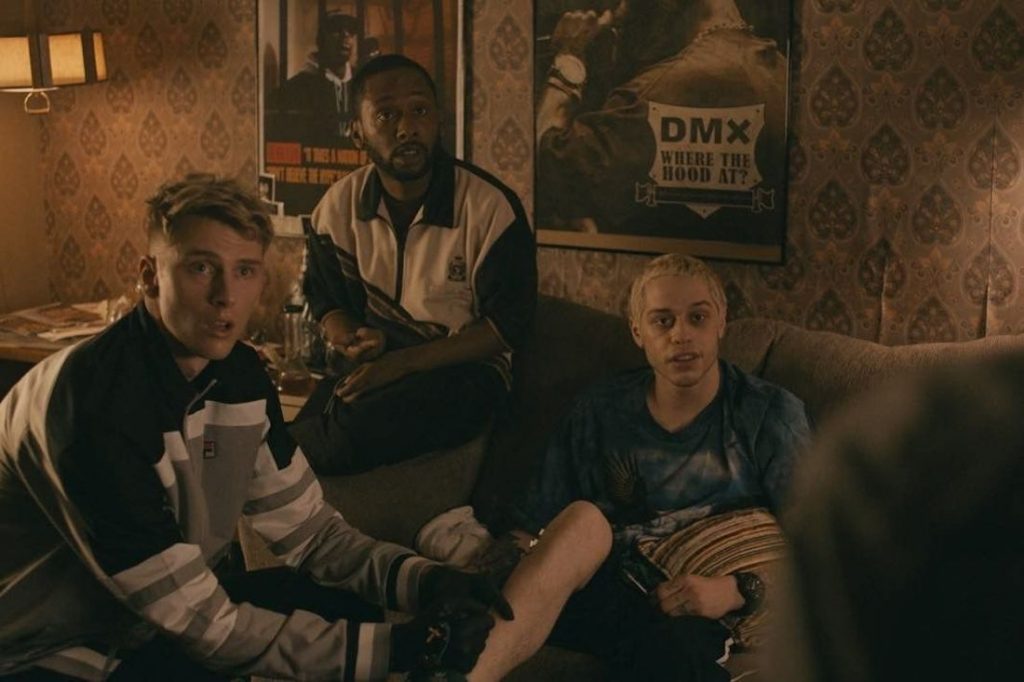
Although Orley’s debut treads similar ground to Almost Famous (2000) and Adventureland (2009), the filmmaker adds his own twist to the coming-of-age genre. The most refreshing thing about Big Time Adolescence is that it embraces the realism of its situation. Growing up is about learning from one’s mistakes. Admirably, Orley also avoids wrapping up the story in a neat little package. The ramifications of each conflict stay with the characters even as the credits roll, reminding us that maturing as a person isn’t easy. Sometimes we have to move on from others, rather than with them.
Overall, Big Time Adolescence may not raise the bar for the coming-of-age genre, but it’s an enjoyable and entertaining experience. At a short 90-minute runtime, it authentically captures the teen-spirit Orley’s aiming for. Gluck’s performance is certainly heartwarming, but it’s Davidson who carries the feature. Orley understands that finding one’s identity as a teenager is confusing, but becoming an adult is equally so. He asks the question: are bad adolescent decisions a healthy and normal part of life, or pitfalls we ought to try and avoid?

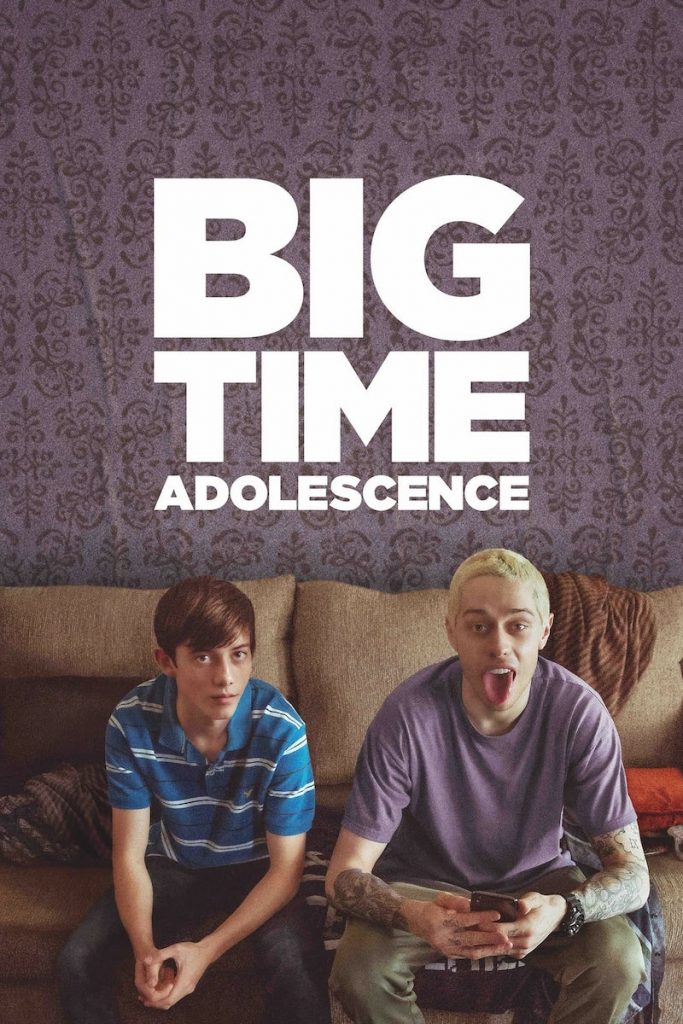
writer & director: Jason Orley.
starring: Pete Davidson, Griffin Gluck, Emily Arlook, Colson Baker, Sydney Sweeney & Jon Cryer.
